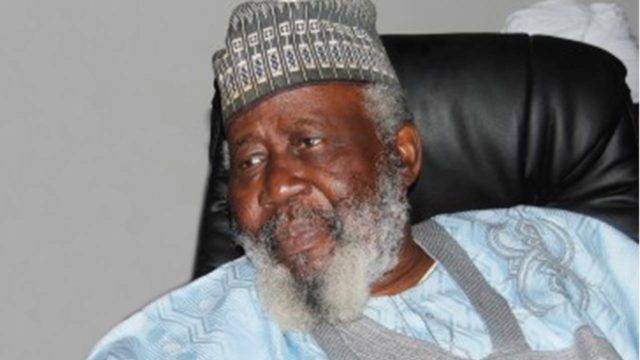Justice Mustapha Akanbi, the inaugural Chairperson of Nigeria’s Independent Corrupt Practices and Other Related Offences Commission, (ICPC) who died earlier this morning sent a message to Nigeria many years a go. That is not in his headship of that commission, important as fighting corruption in a corruption wrecked country is. It was the message of the ‘informed right wing individual’ and national survival based on a sense of governance that speaks to discretion in the use of power, the kind of discretion King Herod did not use when his step-daughter was instigated by the mother to demand for the head of John the Baptist. Yes, the king told the young girl to ask for whatever pleased her for doing him proud in the presence of guests at his birthday. However, when the step-daughter asked for the head of a human being, the king could have over-ruled her because the king did not create life and the life of human being is thus not part of the things the king could oblige anybody whosoever.
Unlike King Herod, the late Justice Mustapha Akanbi exercised discretion in his use of power, at least in one particular and instructive instance. In the aftermath of the 1986 student revolt originating from the Ahmadu Bello University, Zaria before spreading across the campuses, the Justice was put at the head of a judicial commission to unpack the disaster in which lives were lost. At the several sittings of the Commission, many of the student leaders, either feeling justified in the radical nationalist cause they were involved or for whatever such reasons, said the sort of things a Judge could use to jail them. But he said to the students they were saved by their intelligence. According to one of them in a conversation in writing this, Justice Akanbi said, “You are all guilty but you are too intelligent for me to live with sending you to jail”.
This was not because they were from his tribe or religion but because he saw potentials he could not live with judicially destroying. It is an illustrative behaviour because it signified that though right wing as most judges, he was nevertheless informed to the point of being progressive.
Memories have faded now and no one contacted in the course of writing this could categorically confirm if the Federal Government ever issued a White Paper on Judicial Commission of Inquiry into the Students Crisis at ABU, Zaria in 1986. That sends the signal that Akanbi most likely declined to do exactly as he might have been directed to do in terms of using the commission to ruin lives by sending certain students out of the university system. The government at the time had become ignorantly alarmed by the content of certain courses in certain universities and was bent on ruining such universities. The last on this might not have been heard as those who directly experienced him might be giving account but it would seem that Akanbi’s report was instead re-interpreted by powerful interests in government and used to eventually bring the university system to its knees in Nigeria. The popular narrative is that this went from sending the most inspiring lecturers away to the frightening emergence on the campuses of well heeled, physically intimidating toughies with the sole aim of repressing radical student activists. That is what has passed into popular usage called campus cultism in Nigeria till today. It is not surprising that a university system which had climbed so high on a global scale suddenly crashed to the point that even the government is now worried.
In other words, student leaders of those days arguing that Akanbi did a thorough job must be inferring that Akanbi was too ideologically sensitive or too advanced to be used, even by the Nigerian State which he served in the judicial arm. That speaks to the imperative for intra-class distinctions when talking about black boxes such as class, bourgeoisie, power elite, etc. Some of them are builders just as many of them are destroyers. The loud statement there is that they are not all of the same temperament. The louder message in Akanbi is the power of interpretation. The loudest is the imperative for discretionary use of power by the leader. Hence the notion of Mustapha Akanbi as an embodiment of messages to Nigeria. Adieu, Justice Mustapha Akanbi!




























